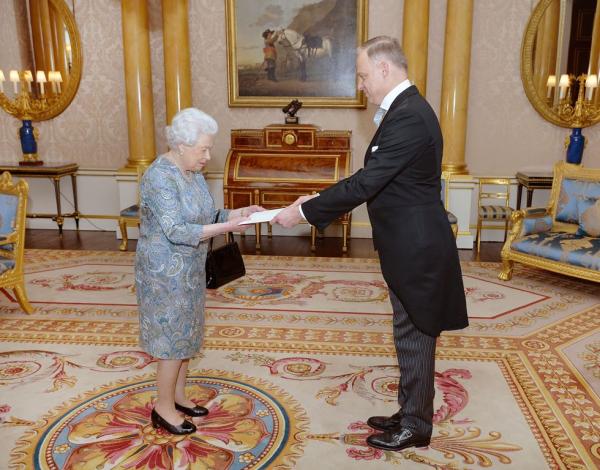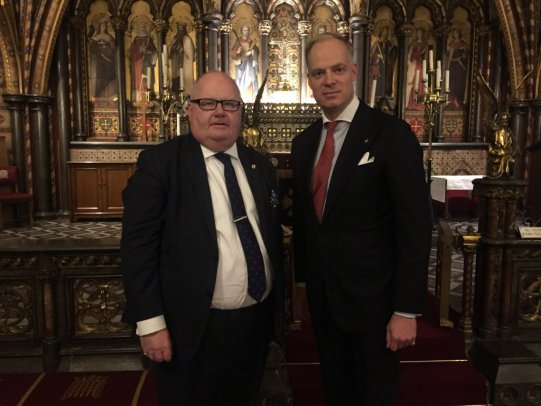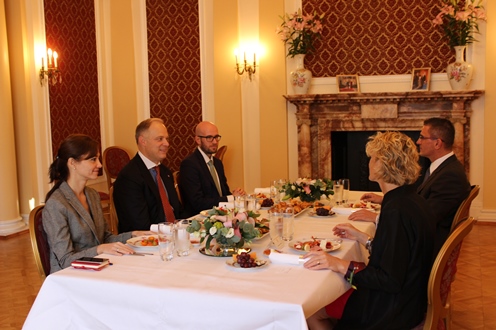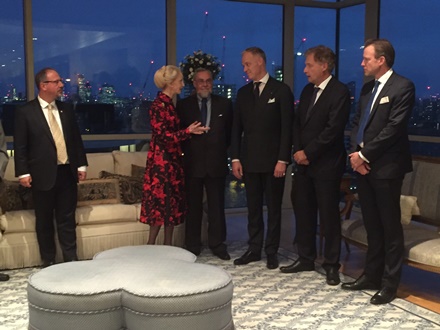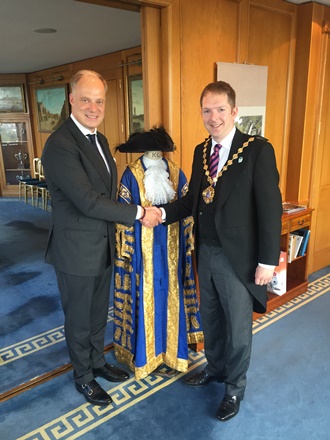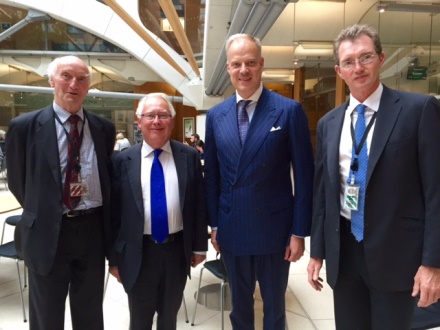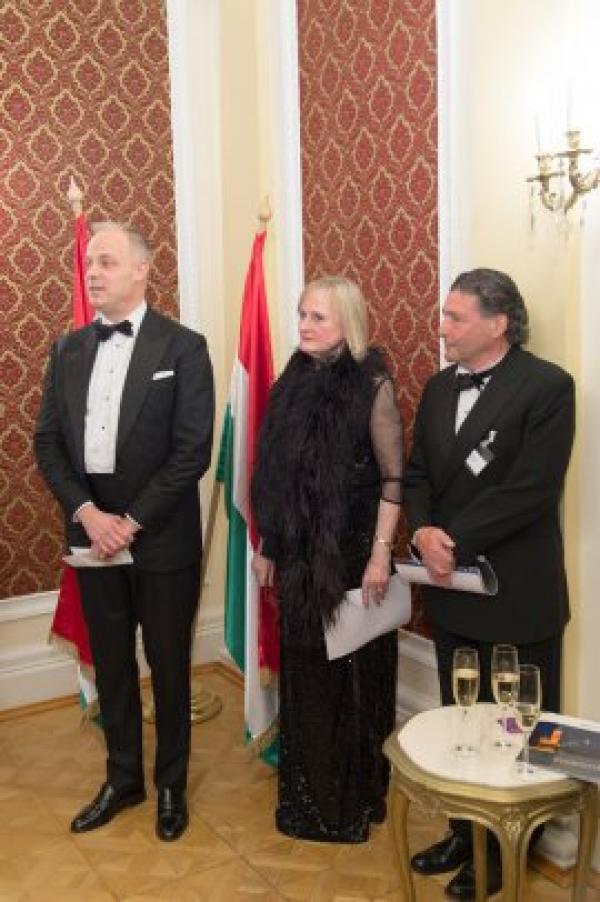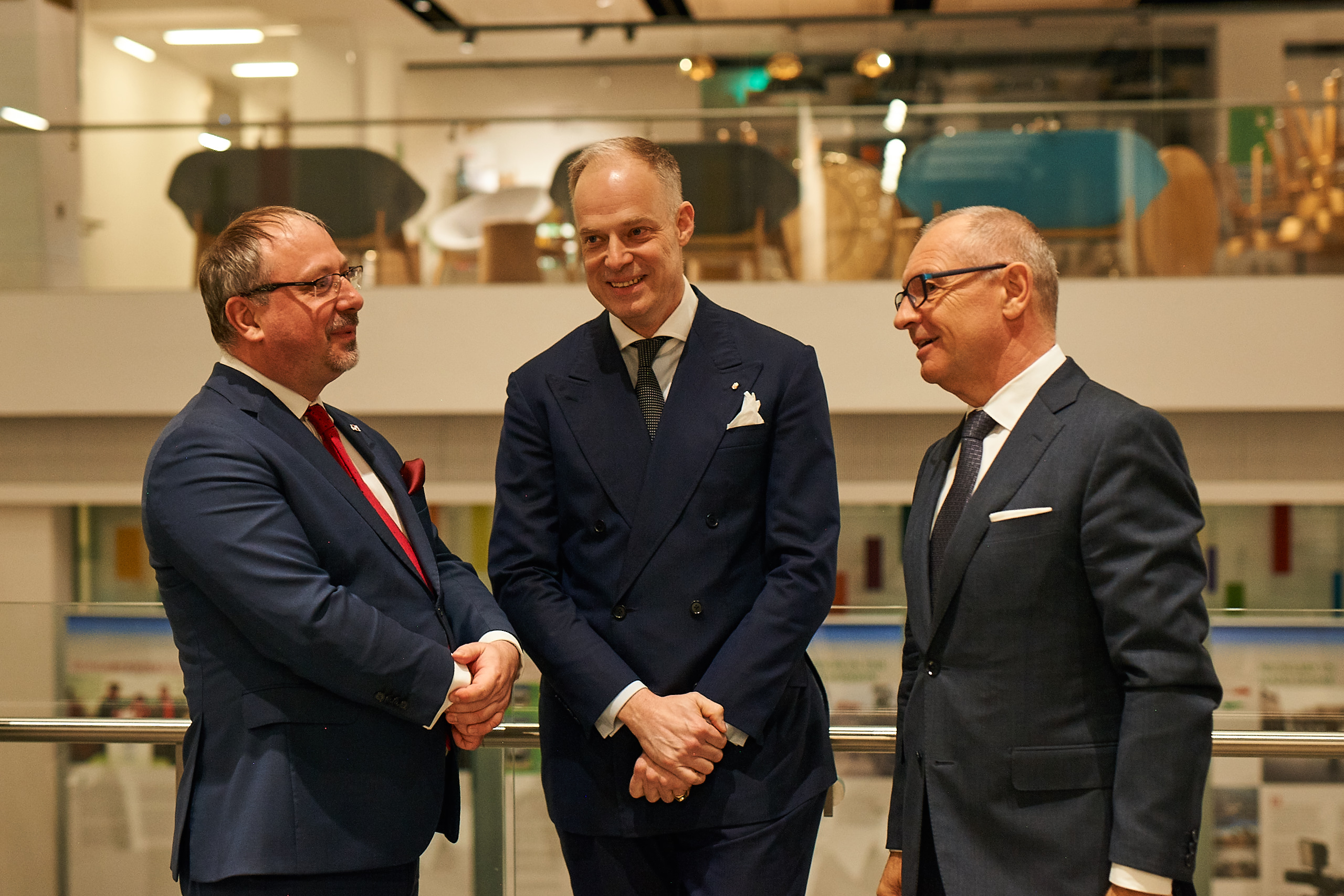Keresés: color
Keresés: color
Order a copy of a Hungarian birth/marriage/death certificate
You can order a certified copy of a Hungarian birth, marriage and death certificate in person through an official representation (consular office) in the UK. Honorary consuls are NOT authorised to take such applications.
Please note that a copy of a birth, marriage or death certificate can only be obtained when the birth, marriage or death in question happened in the (current) territory of Hungary or, if it happened abroad, it has been already registered in the Hungarian records. Otherwise the birth, marriage or death has to be registered first (see at 'Registration of birth, marriage, death')
Submission of applications may only be done after booking your appointment at https://konzinfoidopont.mfa.gov.hu/.
When booking your appointment, please select “Issuing a birth/marriage/death certificate” as 'type of application'. Always put 1 for the number of applicants, irrespective of the number of certificates you wish to obtain - please note though that a separate application form needs to be filled out for each certificate.
The consular office does not provide emergency/fast track appointments. We use the same booking system as our clients do, therefore we are unable to give you earlier appointments either.
As a general rule, certificates are issued within 2-3 weeks of submitting the application and are free of charge. Should you wish to receive the document via post, please make sure to bring a stamped and addressed envelope as well to your appointment (it is recommended to use a “special delivery” service).
You may download the necessary form at the bottom of this page. Please note that all forms must be filled out and signed with a blue ink pen, and in all cases the Hungarian version must be used – the English version and is a courtesy translation and is a guideline only.
Should you wish to obtain the birth/marriage/death certificate of your parents (ancestors), you need to provide a proof of relationship to those persons (ie. your own birth certificate). The valid passport or ID card of the applicant must be presented at all times.
***
Application form:
Form to obtain birth / marriage / civil partnership / death certificate issued by the Hungarian authorities
English translation of the application form (guideline only)
Presenting the credentials to Her Majesty The Queen
Ambassador Kristóf Szalay-Bobrovniczky presented his credentials to Her Majesty the Queen on 15 November 2016. He was accompanied to the Buckingham Palace by Alistair Harrison, the Marshal of the Diplomatic Corps, Beáta Margitay-Becht deputy head of mission, Colonel József Gulyás defence attache, Edina Cserjés head of consulate and Máté Pesti investment and trade attache.
Ambassador Kristóf Szalay-Bobrovniczky presented his credentials to Her Majesty the Queen on 15 November 2016. He was accompanied to the Buckingham Palace by Alistair Harrison, the Marshal of the Diplomatic Corps, Beáta Margitay-Becht deputy head of mission, Colonel József Gulyás defence attache, Edina Cserjés head of consulate and Máté Pesti investment and trade attache.
Ambassador Kristóf Szalay-Bobrovniczky met Sir Eric Pickles MP, UK Special Envoy for Post-Holocaust issues
Ambassador Kristóf Szalay-Bobrovniczky met Sir Eric Pickles, Conservative MP, Special Envoy for Post-Holocaust issues of the UK government on 18 October 2016 in the House of Commons.
The parties exchanged views about developments in the field of fighting against antisemitism in Hungary and the UK respectively, prospects of the Brexit process and other current topics of mutual interest.
Breakfast discussion with British Rowing
Ambassador Kristóf Szalay-Bobrovniczky hosted a working breakfast with Annamarie Phelps CBE, Chair of British Rowing, and Szabolcs Bényi, Chair of Hungarian Rowing Association to discuss best practices, and future cooperation opportunities, such as the 2019 Masters World Championship in Hungary.
Charity dinner at the Embassy ahead of the World Alzheimer’s Ball
Kristóf Szalay-Bobrovniczky attended the World Alzheimer’s Ball and prior to the event hosted a dinner in honour of some prominent guests of the Ball as a contribution to the charity event. The event was promoted by Lady Barbara Judge CBE, Chairman of the Special Events Support Committee for Alzheimer’s Society and Dementia UK.
Explaining the reason for the Hungarian participation in the event, the Ambassador underlined that improving people’s mental health, including that of those who suffer from dementia, is regarded as a priority by the Hungarian government and Hungary is committed to the international endeavours aimed at supporting people with dementia and improving relevant practices in this field.
The Ball helped to send a powerful message about the importance of championing the dementia agenda. According to the organisers, the money, raised through sponsorship, table and ticket sales, pledges and a luxury silent auction will be used for researching dementia and Alzheimer’s disease.
Ambassador Kristóf Szalay-Bobrovniczky visited Westminster City Hall
Ambassador Kristóf Szalay-Bobrovniczky met Steve Summers, Lord Mayor of Westminster to discuss future cooperation opportunities between Hungary, her capital Budapest, and Westminster in the fields of culture, sports, and education.
Zoltán Kovács, Spokesperson of the Hungarian Government paid a visit to London on 12 September 2016
Zoltán Kovács, Government Spokesperson at the Cabinet Office of the Prime Minister of Hungary visited London on 12 September 2016. The aim of the visit was to provide information about the referendum on mandatory EU migrant quotas due to take place on 2 October in Hungary, share the latest economic figures of Hungary, as well as exchange views about the post-Brexit situation.
In the framework of a press breakfast, Mr Kovacs had a discussion with representatives of the British media and later exchanged views with Hungarian correspondents working in London. During the visit, the Spokesperson had a working lunch with Colin Bloom, Director for Outreach at the Conservative Party, had background talks in the BBC, and was interviewed by Sky News.
Meetings of Ambassador Kristóf Szalay-Bobrovniczky in the Houses of Parliament
The Ambassador had his first introductory meetings in the House of Commons and House of Lords during the week of 11-15 July 2016.
He met members of the Hungary All-Party Parliamentary Group to discuss the post-EU-referendum situation in Westminster and the Parliament’s role in the process. Brexit was the main topic of discussion with prominent Eurosceptic Bill Cash MP, Chair of the EU Scrutiny Committee and Lord Boswell, Chair of the EU Select Committee.
Forum Klub roundtable discussion with József Simola, CFO of MOL Group
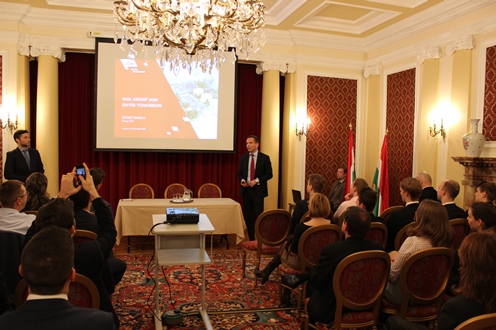
The Fórum Klub lecture featuring József Simola, CFO of MOL Group was held at the Embassy on 24 November 2016.
The audience of young Hungarian and international professionals working in the financial services industry, together with students of the most prominent universities of the United Kingdom could listen to a presentation about the future strategies and business model of MOL Group, followed by a Q&A session. During the discussion, participants could find out more about the alternative investment plans of MOL.
Deputy State Secretary, Political Director Levente Benkő visited London on 25 November 2016
Levente Benkő, Deputy State Secretary, Political Director of the Ministry of Foreign Affairs and Trade visited London on 25 November 2016, where he had an exchange of views with his UK counterpart, Tim Barrow, Political Director of the Foreign and Commonwealth Office, Anthony Philipson, Director for Partnerships and Trade at the Department for Exiting the European Union, Sir William Cash, Conservative MP, Chair of the European Scrutiny Committee of the House of Commons and prominent UK opinion shapers, including senior officials from the FCO, politicians, think tank leaders and journalists.
During the talks, the parties had discussions about current topics of mutual interest, inter alia, prospects of the Brexit process, possible impacts of the recent US elections, recent developments of the migration crisis, and touched upon regional issues such as Russia, Ukraine, Western Balkans, Syria, Iran and Egypt.
Ágnes Hornung Financial State Secretary on an official visit in London
Ágnes Hornung, Financial State Secretary of the Ministry of National Economy of Hungary arrived in London on 24 November 2016 for an official visit.
he held bilateral discussion with her British counterpart, Mr Simon Kirby, Economic Secretary to HM Treasury (City Minister). The two government officials reviewed the most important issues on the financial agenda of the She held bilateral discussion with her British counterpart, Mr Simon Kirby, Economic Secretary to HM Treasury (City Minister). The two government officials reviewed the most important issues on the financial agenda of the European Council and identified possible ways of further cooperation. Mr Kirby gave a brief overview of the state of play of the Brexit preparations as well as underlined that until the United Kingdom leaves the European Union, it will be an active and influential member of the EU28. During her two day visit the Financial State Secretary participated at numerous roundtable discussions with the representatives of the biggest financial institutions in the City of London and with credit rating agencies; and met high-level officials at the European Bank for Reconstruction and Development.
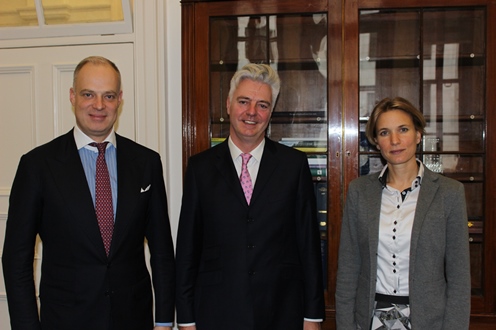
Celebrating at the 10th anniversary of the establishment of the Westminster Business Council
A reception dedicated to celebrate the 10th anniversary of establishing the Westminster Business Council was held on 1st December at the Embassy of Hungary. The event was hosted by His Excellency Kristóf Szalay-Bobrovniczky, Ambassador of Hungary to the UK. The London-based Business Council has approximately 12 thousand partners within its business network among them some of the most prominent companies in the British business world.
The Hungarian ambassador in his opening speech mentioned that he would like to continue to rely on the constructive cooperation between the Embassy and the organisation, with the aim of creating more awareness of Hungary and its business friendly environment among UK businesses. Following the opening remarks of Elizabeth Crowter-Hunt, CEO and Barry Malcolm Tucker, Chairman of the Westminster Business Council, the attendees could continue their conversations while some traditional Hungarian wine and snacks were served for them.
Special visa information in the UK
IMPORTANT NOTICE ON RULES AND REGULATIONS
1.) The European Commission has formally adopted a revised harmonised list of supporting documents on 6 September 2021 which is now applicable.
2.) The BREXIT transition period has ended. As of 1 January 2021 Third-country national EEA/EU/Union family members holding a UK residence permit explicitly issued to the EEA/EU/Union family member shall obtain an entry visa before visiting Hungary. This rule only applies to those Third-country national family members, who need a visa to cross the Schengen borders.
3.) British citizens do not need a visa to visit countries in the Schengen Area short-term after Brexit. The UK has now joined a group of visa-exempt third countries which means that, although the UK is now a third-nation, its citizens are not subject to visa requirements. Whilst a visa is not needed for transit, tourism or family visit, British citizens who wish to enter for other reasons such as to work should check the visa requirements of the specific EU member state. Hungary does not require a visa from British citizens for any reason (including work) for up to 90 days in any 180-day period. British citizens who wish to enter Hungary to work should check if they need a work permit (which is not a visa) with the help of their future employer. Information in Hungarian is available for employers at the National Employment Service's website. Should the intended stay, for any reason, exceed 90 days in any 180-day period, British citizens need to apply for a residence permit (see point I below)
4.) As of 2 February 2020 new EU rules on short-stay visas make it easier for legitimate travellers to apply for a visa to visit Europe, facilitating tourism, trade and business, while providing more resources for countering irregular migration risks and threats to internal security. For further details please visit https://ec.europa.eu/commission/presscorner/detail/en/qanda_20_149
5.) Please note that the visa procedure concerning family members of Hungarian citizens has changed with effect from 1 January 2019. Family members of Hungarian nationals who need a visa to travel to Hungary based on the 2018/1806/EU Regulation should lodge the application in line with the general Schengen visa procedure (see below: point II. 3-7)
6.) Consulates are collecting fingerprints and digital photos from visa applicants and the applicants' data will be stored in the Visa Information System (VIS).
The data can be consulted by all visa-issuing authorities of the Schengen States, and is counter-checked by border authorities at the entry of the visa holder into the Schengen area.
For further information click here
7.) Non-EU citizen need a valid passport fulfilling the following criteria:
· its validity shall last until at least three months after the intended date of departure from the territory of the Member States
· it shall have been issued within the previous 10 years.
8.) List of travel documents which entitle the holder to cross the external borders of the Schengen Area and which may be endorsed with a visa can be found on the following website at the (Info banner on the right, under 4 different links):
http://ec.europa.eu/dgs/home-affairs/what-we-do/policies/borders-and-visas/index_en.htm
9.) Please note that a visa is only a prerequisite for entering the country. However, entry conditions may be checked at the border and you might be refused to enter the country even if you possess a valid visa in case you fail to comply with the entry conditions.
---------------------------------------------------------------------------------------------------------------------------------------------------------
VISAS AND RESIDENCE PERMITS
I. RESIDENCE PERMIT
Foreigners intending to stay more than 3 months in Hungary may apply for a residence permit at VFS Global. VFS Global is accepting walk-in appointments for residence permit applications on Tuesdays and Thursdays between 1-2 pm in London. Information on residence permit procedure including the downloadable application form and the correspondent appendixes can be found on the website of the National Directorate-General for Aliens Policing and also on the website of VFS Global.
Please note that as of 1 January 2019, third-country national family members of Hungarian citizens shall apply for a residence permit on the grounds of family reunification for residence exceeding three months. For further details, please click here.
VISA APPLICATION CENTRE
London
Joint Visa Application Centre
66 Wilson Street
London
EC2A 2JX
For more information: InfoUKHungary@vfsglobal.com
II. SCHENGEN VISA
1. General information
Hungary is a member of the Schengen Area, therefore if you have a valid Schengen visa (i.e. you have not surpassed the validity date, the number of days and the number of entries permitted) then you can use it to travel to Hungary as well.
We would strongly recommend you to apply for a visa as early as possible but not more than 6 months before the date of your actual journey.
In accordance with Article 9 of the Community Code on Visas (810/2009 Regulation of the Council and the Parliament) the application should be lodged at least 15 days before the intended travel. If an applicant fails this time due to the point II.3.3.1 of the C(2010) 1620 decision of the European Committee published on 19th March 2010 it is his/her responsibility. Please note that in certain cases the visa procedure could take up to 45 days (in accordance with Article 23 of the Visa Code).
2. Where to apply for a Schengen visa to Hungary
Visa service is provided at the Visa Application Centre for Hungary by VFS Global Services Ltd. (please see point 3.). VFS assists applicants with the procedure and forwards the application to the Embassy for an additional fee.
Please note that if you are not resident in the UK you should normally apply for a visa at the Hungarian Embassy or Consulate in your country of residence.
Should you want to visit a Schengen Member State you should apply for a visa at the Consulate of that country. Should you wish to visit several Schengen Memeber States within the same trip you should apply at the Consulate of the country where you intend to stay for the longest period of time. Should you intend to visit several Schengen Memeber States but no main destination can be determined you should apply at the Consulate of the country whose external border you will cross first in order to enter the territory of the Schengen Area.
Applications should be lodged at least 15 days before the intended travel date. Please note that neither the Consulate nor the Visa Centre takes responsibility for applications submitted less than 15 days before the intended departure and the Consulate reserves the right to return such applications without making any decisions on them.
3. How to apply for a Schengen visa to Hungary
All Schengen visa applications shall be lodged at one of the following VFS visa application centres:
London
Joint Visa Application Centre
66 Wilson Street
London
EC2A 2JX
Edinburgh
Joint Visa Application Centre
1 Reenie’s Isle
Leith
Edinburgh
EH6 6QT
Manchester
Joint Visa Application Centre
50 Devonshire Street North
Manchester
M12 6JH
VFS is accepting walk-in appointments (between 8:30am and 11am) for the following categories only:
- Family members of Hungarian Nationals, visiting family/friends
All other categories need to book an appointment using VFS appointment portal.
For further information and/or clarification feel free to contact VFS' helpline at InfoUKHungary@vfsglobal.com or call 0871 376 2101 from Monday to Friday between 08.30am and 5.30pm
***
This is a fast track service as the Centre can receive a high number of applicants and VFS offers support to applicants during the procedure. The service costs £29 in addition to the visa fee.
For more information, please visit the website https://visa.vfsglobal.com/gbr/en/hun/
4. Duration of the procedure
In accordance with 810/2009/EC regulation (Visa Code) applications shall be decided on within 15 calendar days of the date when the application has been considered as admissible by the consulate. However, this period may be extended up to a maximum of 45 days in individual cases, notably when further scrutiny of the application is needed.
5. Visa fees
Visa fees can be checked here.
Visas are issued free of charge for the following applicants:
- children under the age of 6 travelling with their own passports,
- family members of EU/EEA citizens either travelling together with their EU/EEA national family members or travelling in order to meet their EU/EEA national family members (family members of Hungarian nationals do not fall under this category)
- researchers having a valid contract with a research institution in Hungary,
- pupils, students and their teachers travelling for study reasons,
- representatives of non-profit organizations under the age of 25 participating and attending seminars, conferences, sport, cultural or educational events organised and held by NGOs,
- Belarus citizens between the age of 6 and 12 years,
- Turkish citizens between the age of 6 and 12 years,
- Belarus national participants aged 25 years or less in seminars, conferences, sport, cultural or educational events organised by non-profit organisations.
A reduced fee applies to the following applicants:
- nationals of countries having a visa facilitation agreement with the European Union: Albania, Armenia, Azerbaijan, Bosnia and Herzegovina, Georgia, Macedonia, Moldova, Montenegro, Russia, Serbia and Ukraine.
A reduced fee applies to the following applicants:
- children between the age of 6 and 12 years
The visa fee can be paid by cash, debit/credit card or Postal Order, when the application is submitted at VFS Visa Center.
Please note that in case of refusal the fee will NOT be reimbursed.
6. Supporting documents to be presented by visa applicants
The European Commission has formally adopted a revised harmonised list of supporting documents on 6 September 2021 which is now applicable.
General requirements when applying for a short stay visa (C):
- passport containing at least two blank pages, issued within 10 years before the submission of the visa application and its validity shall extend at least three months after the intended date of departure from the Schengen area,
- a United Kingdom residence permit valid for at least one months beyond the intended departure from the Schengen area,
- a wholly and legibly completed and signed visa application form,
- a passport-size colour photo (not older than 6 months),
- travel medical insurance valid throughout the territory of the Schengen area and covering the entire period of the applicant’s intended stay or transit. The minimum coverage shall be €30,000 (such travel medical insurances are available at all post offices),
- documents indicating the purpose of the journey,
- documents in relation to accommodation or proof of sufficient means to cover the costs of accommodation,
- proof of sufficient means of subsistence (eg. recent bank account statements, payslips etc),
- confirmed outward and onward flight/ferry, etc. reservation.
The applicant shall present the original, as well as the copy of the documents when submitting the application!
7. Specific requirements
Specific requirements depend on the main purpose of travel, the length of the intended stay and the personal circumstances of the applicant. For more information please visit the following websites.
List of supporting documents can be found as checklist on VFS' website: https://visa.vfsglobal.com/gbr/en/hun/
Please bear in mind that the consul may ask for additional documents anytime during the visa procedure and applicants may be called for a personal interview, as well.
8. Documents required from family members of EU/EEA citizens
Third country national family members of EU/EEA nationals accompanied by the EU/EEA national or joining the EU/EEA national are waived from visa obligation only if they possess a ‘residence card of a family member of an EU/EEA national’ issued by an EU/EEA Member State (the UK is no longer an EU Member State). Please note that you may be requested by the immigration authorities to provide documentary proof of family relationship (e.g. original certificate of birth, marriage or civil partnership).
Third-country national EEA/EU family members holding a UK residence permit explicitly issued to the EEA/EU/Union family member shall obtain an entry visa before visiting Hungary. This rule only applies to those third-country national family members, who need a visa to cross the Schengen borders.
Family members applying for a visa are requested to provide proof of their EUSS status (pre-settled or settled), proof of the family relationship (e.g. marriage certificate) and proof that they are travelling together with their EEAU/EU family member (e.g. flight ticket) or joining them (e.g. invitation letter).
IMPORTANT NOTE! Family members of Hungarian nationals who need a visa to travel to Hungary based on the 2018/1806/EU Regulation should lodge the application in line with the general Schengen visa procedure (see points II.3-7. above).
9. Visa refusal
If the visa is refused, annulled or revoked, applicants have the right to appeal. Appeals can be submitted in person either by the applicant or by the person who has a power of attorney from the applicant at the competent Hungarian Consulate (that refused the visa application) 8 days within the date of receiving the decision on refusal and 3 days within the date of receiving the decision on the annulment or revocation of a visa. An appointment shall be booked via email at visa.lon@mfa.gov.hu.
The Department of Consular Affairs of the Ministry of Foreign Affairs and Trade decides on the appeals within 15 days (in case of annulment or revocation of a visa within 5 days). The appeal should be lodged in writing and it should be signed by the applicant. The appeal must be submitted in Hungarian or in any other official languages of the European Union. If the applicant lodges the appeal in another language he/she must submit an official translation thereof.
The fee of the appeal procedure should be paid when submitting the appeal by debit card or Postal Order made out to the Embassy of Hungary. The fee for the appeal procedure cannot be reimbursed, not even in case of a positive decision. Reduction of the fee is not possible and must be paid by all applicants (even if the visa procedure was free of charge).
Further supporting documents may be submitted during the appeal procedure and the applicant might be called to the consulate for a personal interview.
The decision on the appeal may be subject to judicial review.
In case of refusal a new application may be submitted at any time and the visa fee has to be paid again. For further details about the appeal procedure please check the information on the refusal form.
10. Getting your passport back
Upon collection of the passport, applicants are advised to check the entries of the visa sticker, and notify the Consulate in case of any discrepancy.
11. Information on visa waiver agreements
Please visit the website of the Hungarian Consular Service:
https://konzinfo.mfa.gov.hu/en/visa-free-travel-hungary
e-Identity Card
The eID card is a permanent ID card issued from 1 January 2016 that has a storage element (chip) which allows its holder to use a number of electronic convenience services: e.g. e-government, e-signature, public transport, ePrescription, etc. The range of functions is constantly expanding and details can be found at https://eszemelyi.hu/en/
Only Hungarian citizens can apply for an ID card and only permanent ID cards can be requested. It is not possible to apply for a temporary ID card at a consulate.
The permanent ID card can be renewed or replaced in the following circumstances: change in personal data, expiration of validity, error of fact or if the card gets lost, stolen, damaged or destroyed.
It is possible to renew the ID card that is about to expire no sooner than 60 days before the date of expiration.
1.) Application process
ID card application can be submitted only in person by prior appointment. Appointments can be made online at https://konzinfobooking.mfa.gov.hu
Those minor applicants who have turned 14 can apply for an ID card on their own (without the presence of a parent).
At your appointment you are required to present the following documents:
- valid permanent ID card or an ID card that expired not more than 1 year ago;
- Hungarian passport or a passport that expired not more than 1 year ago;
- address card (lakcímkártya)
- birth certificate or marriage certificate
If you possess a valid Hungarian ID card, yet you are unable to present them during the procedure, your application for the ID card will not be accepted, except if the valid document has been lost or stolen. In this case, you have to give a declaration about the fact that the card was stolen or lost. Your declaration will be drawn up in an official report at the Consulate.
In case you do not have a valid Hungarian ID card or passport, you have to present either one of the following documents:
- valid foreign ID card or passport
- valid Hungarian or foreign driving license card (provisional driving license won't be accepted)
If the applicant is under the age of 14, the attendance of one parent / legal representative is sufficient for submitting the application. The legal representative is required to present a valid identification document (e.g. passport, identity card, driving license (excluding provisional driving license)). Additionally, the legal representative must provide the Hungarian birth certificate of the child. In cases where the child's birth has not been registered in Hungary, it is necessary to initiate the birth registration first.
In case the applicant is under the age of 6, a recent photo of the child is required. The photo shall be taken with a white background by a professional photographer. Minors under the age of 6 are not required to be present at the appointment.
The old ID card must be taken. Valid ID cards are given back for use until the arrival of the new document. However, in this case the new ID card can only be taken after handing over of the old document at the Consulate.
Upon the submission of the application, your photo, fingerprints and signature are digitally recorded.
Fingerprints will not be recorded if:
- the Hungarian citizen is under age of 6;
- the applicant is physically unable to give fingerprints
2.) Codes and passwords
Upon the submission of the application the applicant is given a PIN envelope that contains the PIN code and PUK code of the Electronic ID card. Once you have received the ID card, you can create a Governmental Client Gate (Ügyfélkapu) profile online at www.magyarorszag.hu using your PIN code. The PIN code is necessary for some of the Hungary-based services provided by the E-ID card. The PIN code can be changed once the E-ID card is handed over to the owner. Services provided by the E-ID card are not available without the activation of the PIN code. However, the document can be used for travelling and personal identification even without the activation of the PIN code.
Please note that in case you lose the PIN envelope before receiving the new ID card, the Consulate will not be able to initiate an application for a new PIN code, as it can be requested only in the government document offices located in Hungary. Likewise, the Consulate has no competence in the re-activation of the blocked PUK code, either.
Services provided by the E-ID card: registration of social security number (TAJ-szám), tax number, and the phone number of an emergency contact.
Upon submission of the application for an E-ID card, the consul checks the database in order to find out whether the applicant has a registered social security number (TAJ-szám) and tax ID. In case the query returns no results, the social security and tax ID will not be recorded on the storage unit of the E-ID card. In case you possess a social security card (TAJ-kártya) or a tax card, make sure you have both of the documents on you at the time of your appointment.
You can request the registration of the phone number of an emergency contact either together with your application for the ID card or after having received your new ID card. It is possible to register two phone numbers.
3.) Payment
The Electronic ID card application is for free of charge.
4.) Duration of the procedure
The new documents arrive to the Consulate within 5-8 weeks after the date of application.
5.) The validity of the E-ID card
In case the cardholder is over 18 years of age, the ID card has a validity of 6 years and expires on the birthday of the owner.
In case the cardholder is over 12 years of age, but has not yet turned 18, the ID card has a validity of 3 years and expires on the birthday of the owner.
In case the cardholder has not yet turned 12, the ID card is valid for 3 years and expires on the birthday of the owner or on the day the owner turns 12. (For instance, if the date of issue is 20 January 2017 and the birthday of the owner is on 5th April, the E-ID card will expire on 5th April 2020, except if the owner turns to 12 before 5 April, 2020.)
Those who are over 65 years of age can request an ID card without an expiry date. ID cards without an expiry date have no storage units; the date of expiry is established as 1st January of the 60th year after the date of issue.
6.) Rejection
The application can be rejected if:
- the applicant is not registered in the personal data and address information database;
- if the applicant has a passive record in the personal data and address information database (for instance because formerly having settled abroad);
- the applicant has failed to register an event (marriage, divorce) happened abroad which caused the change of the name (for instance, she has taken her husband’s surname);
- a travel ban has been imposed on the applicant.
The applicant can lodge an appeal against the negative decision within 15 days. The appeal must be submitted to the consulate where the negative decision has been made. The appeal must be explained.
It is not possible to request an electronic signature (E-sign) at the consulates. It can be applied after having received the E-ID card online or personally at any government office located in Hungary.
BAJBAJUTOTT MAGYAR ÁLLAMPOLGÁR
Az Egyesült Királyságban, illetve a brit tengerentúli területeken bajba jutott magyar állampolgárok a nap 24 órájában elérhetik a Konzuli Szolgálatot, az alábbi elérhetőségeken.
Londoni Nagykövetség
Munkaidőben: +44 (0) 207 235 5218
Email: konz.lon{at}mfa.gov.hu
Munkaidőn túli halaszthatatlan vészhelyzetben hívják a budapesti Konzuli Tájékoztatási és Ügyeleti Központot !
Londoni Nagykövetség Edinburgh-i Alkonzulátusa
Munkaidőben: +44 (0) 131 556 3838
Email: konz.edi{at}mfa.gov.hu
Munkaidőn túli halaszthatatlan vészhelyzetben hívják a budapesti Konzuli Tájékoztatási és Ügyeleti Központot !
Manchesteri Főkonzulátus:
Munkaidőben: +44 (0) 161 503 5678
Email: konz.man{at}mfa.gov.hu
Munkaidőn túli halaszthatatlan vészhelyzetben hívják a budapesti Konzuli Tájékoztatási és Ügyeleti Központot !
***
A konzuli védelem formái:
- A bajba jutott (alapvetően) önerőből történő hazatérésének elősegítése
- Segítségnyújtás súlyos sérüléssel járó baleset vagy erőszakos bűncselekmény áldozatának
- Segítségnyújtás súlyos és sürgős ellátást igénylő (együttes feltétel) betegnek
- Segítségnyújtás katasztrófa, háború vagy fegyveres összeütközés (együttesen: válsághelyzet) közvetlen érintettjének
- Segítségnyújtás külföldön fogvatartottnak
- A külföldön elhunyt eltemetésére kötelezett hozzátartozó temetéssel kapcsolatos ügyintézésének segítése
- Tájékoztató jellegű utazási tanácsok közzététele (a fentiekben írt helyzetek elkerülése érdekében)
A Konzuli Szolgálat a rendelkezésére álló minden eszközzel igyekszik segítséget nyújtani ahhoz, hogy a konzuli védelemben részesülő bajba jutott
- az ügyeinek gyors intézését lehetővé tevő információk birtokába juthasson
- hátrányos megkülönböztetésben ne részesüljön
- élete, egészsége vagy testi épsége ne kerülhessen veszélybe
Miben tud segíteni a Konzuli Szolgálat a konzuli védelemre jogosult bajba jutottnak?
- Hazatéréséhez ideiglenes útlevelet állíthat ki az elveszett, ellopott, megrongálódott vagy lejárt úti okmány helyett
- Tanácsadással közreműködik hazatérése önerőből vagy rokon, ismerős anyagi segítségével történő megszervezésében
- Utólagos visszafizetés és díjfizetés ellenében hazatérési kölcsönt nyújthat, ha magáról saját vagy más forrásból gondoskodni nem tud, önhibája kizárható és a kölcsön nyújtása további súlyos érdeksérelemtől óvja meg
- Egészségügyi vészhelyzetben (súlyos és tömeges megbetegedés) tájékoztatja a helyi orvosok, kórházak elérhetőségéről, közreműködik az esetleg szükséges és orvosilag igényelt, illetve lehetséges hazaszállítás megszervezésében
- Válsághelyzetben tájékoztatást ad és szükség esetén segítséget nyújt a hazatéréshez, illetve az evakuálás megszervezéséhez
- Őrizetbe vétele, letartóztatása esetén – ha erről tudomást szerez – tisztázza ennek okát és jogi megítélését, figyelemmel kíséri fogva tartásának körülményeit
- Kérésére értesíti hozzátartozóját, szükség esetén a segíteni képes ismerőst
- Tájékoztatást ad az adott országban elérhető helyi tolmácsokról és ügyvédekről
- Külföldi haláleset esetén a Konzuli Szolgálat értesíti a külföldön elhunyt eltemetésére kötelezett hozzátartozót és tájékoztatja az eltemetéshez vagy a holttest hazaszállításához szükséges intézkedésekről
Miben nem tud segíteni, közreműködni a magyar és az európai Konzuli Szolgálat?
- A külföldre utazás megszervezésében, abban való közreműködésben
- Menetjegy foglalásában, átíratásában
- Szállás, lakhatás biztosításában; csomagmegőrzésben
- Gépjárműjavításban vagy javíttatásban, üzemanyag biztosításában
- Személy- vagy csomagszállításban
- Banki, biztosítási és postai szolgáltatásokban
- Külföldi munkaközvetítés, munkaügyi viták rendezésében
- Jogi képviselet ellátásában bíróság vagy más hatóság előtt
- Konzuli hatósági eljárások kivételével tolmácsolásban vagy fordításban
- Külföldi letelepedési, munkavállalási vagy egyéb engedélyek beszerzésében
- Magánjogi (peres vagy nem peres) viták rendezésében
- Külföldön felmerülő költségek, hatósági bírságok, díjak (pénzbüntetés, óvadék, ügyvédi díj, egészségügyi ellátás díja stb.) kifizetésében, megelőlegezésében
- A hagyaték, örökség, kifizetetlen munkabér, stb. behajtásában
- Külföldi bűnesetben folyó nyomozásban bármilyen formában való közreműködésben
- Folyamatban lévő szabálysértési vagy büntetőeljárás menetének, eredményének befolyásolásában (Ennek keretében arra sincs módja és eszköze a Konzuli Szolgálatnak, hogy elérje a jogi út mellőzésével történő szabadlábra helyezést, vagy a különleges bánásmódban részesítést.)
Integrity advisor
Integrity advisor: dr. Anita Czikó
Contact information:
Address: Bem rkp. 47., Budapest 1027
Phone: +36-1-458-3600
E-mail: integritas@mfa.gov.hu
Twenty years in NATO
The Embassy of Hungary, the Embassy of the Czech Republic and the Embassy of Poland celebrated together the 20th anniversary of their accession to NATO.
The event took place in the National Army Museum in London, where an exhibition of the Hungarian and Polish NATO contributions were also showcased. Hungary joined the military alliance in 1999 as the first one from the former East Bloc countries, supported by 85% of the population at a referendum. Ambassador Kristóf Szalay-Bobrovniczky in his speech emphasized that the main challenge of our time is to preserve the security of our continents amongst chaotic international situation and terrorist threats. The Chief of Staff of the British Army, General Nick Carter underlined the importance of like-minded alliances and partners, praising the historic choice made by the three countries 20 years ago whereby they expressed their wish to stay independent irrevocably by joining the NATO-family.
Magyarországon ÉS az Európai Unió másik államában is van lakóhelyem
Azok a magyar állampolgárok, akik magyarországi és más Európai Uniós állambeli lakóhellyel is rendelkeznek, a magyar szavazáson való részvételükkel kapcsolatban az NVI-től küldött tájékoztató levélben értesülnek a tudnivalókról.
Figyelemmel arra, hogy a jogszabály értelmében mindenki csak egy szavazati joggal rendelkezik az EP választáson, az ebbe a körbe tartozóknak dönteniük kell, hogy választójogukat Magyarországon, vagy a másik lakóhelyük szerinti országban kívánják gyakorolni.
Amennyiben magyarországi pártlistára kívánnak szavazni, ezt személyesen, a lakóhelyük szerinti szavazókörben, vagy azon a külképviseleten tehetik meg, amelynek névjegyzékébe a választás napját megelőző 9. napig (május 17-ig) átjelentkeznek.
Amennyiben a másik állam pártlistájára szeretnének szavazni, a helyi szabályoknak megfelelően vehetnek részt a szavazáson. (Fő szabály szerint be kell jelentkezni az adott ország névjegyzékébe.)
Európai Parlamenti Választás – Levélszavazásról szóló tájékoztató
A levélszavazatok május 13-tól adhatóak le a külképviseleten, munkanapokon 9 és 16 óra között.
A levélcsomagokat nem szükséges személyesen leadni, azokat egy általunk megkért személy is leadhatja.
A Magyarországon bejelentett lakcímmel rendelkező magyar állampolgárok, akik a választás napján külföldön tartózkodnak, személyesen szavazhatnak, a külképviseleteken. Ennek módja a külképviseleti névjegyzékbe vétel iránti kérelem benyújtása. A kérelem benyújtható online, a valasztas.hu oldalon, valamint papír alapon is.
A kérelem benyújtásának határideje május 17.
Levélszavazás
Entry rules to Hungary as of 15 July 2020
*** The following summary is intended to serve as general information for those planning a trip to Hungary. Detailed rules and requirements are available in the relevant government decree which is available only in Hungarian. For further information in English please also check the websites of the competent Hungarian authorities listed on the bottom of this page. Should you have further question, please contact the official COVID-hotline in Hungary at koronavirus@1818.hu ***
As of 15 July, the Hungarian government introduced new entry requirements in order to prevent the spread of the coronavirus from abroad. Countries has been classified green, amber, or red based on the level of COVID-19 infection. Different rules apply to travellers depending on the 'colour' of the country they are travelling from. The full list of countries is set out on pages 4-7 of a document issued by the Hungarian Chief Medical Officer (available only in Hungarian). The UK has been classified as amber.
Entry requirements for arrivals from the UK (and other countries classified as 'amber')
All arrivals from the UK to Hungary will have to undergo a medical examination for COVID-19 (including a brief interview and temperature screening). UK nationals who can present a valid permanent residence permit or any kind of permit allowing stay in Hungary for more than 90 days (e.g. registration certificate) will need to self-isolate for 14 days on arrival. You can be exempted from the requirement to self isolate if upon arrival you can provide two negative (PCR swab) test results for COVID-19 with a minimum of 48 hours difference between the two tests, taken within 5 days prior to your entry date. NHS PCR swab test results are acceptable in printed format (both the appointment confirmation and the result shall be printed) to avoid the self-isolation requirement. There are also fit to fly COVID-19 tests available in the UK where a certificate is issued. Those are also accepted by Hungarian authorities provided that they are printed and includes a negative PCR swab test result.
You can also choose to undertake testing in Hungary after you have started self- isolation. In order to leave self-isolation to be tested, a special permit needs to be requested from the regional public health authority ('Népegészségügyi Osztály'). Check this map to find out which public health office is located near to your accomodation in Hungary. If your first test is negative, the same public health office may exempt you from further self-isolation, but you are still required to take the second test. If your second test result is positive, you will be required to continue your self-isolation. If on arrival you show symptoms of COVID-19, you will need to go into government quarantin or self-isolation for 14 days.
Other UK nationals (or foreign nationals arriving from the UK) without a Hungarian residence permit will also undergo medical checks on arrival. If you show no symptoms of COVID-19, the same quarantine rules will apply as for those with residence permit. However, if you show signs of COVID-19, entry to Hungary will be denied.
If you need a visa to enter Hungary, please check the "Visa information" part of our website.
Transiting through Hungary
Further information in English is available on the following websites:
Hungarian National Health Agency
*** Should you have further question, please contact the official COVID-hotline in Hungary at koronavirus@1818.hu ***

